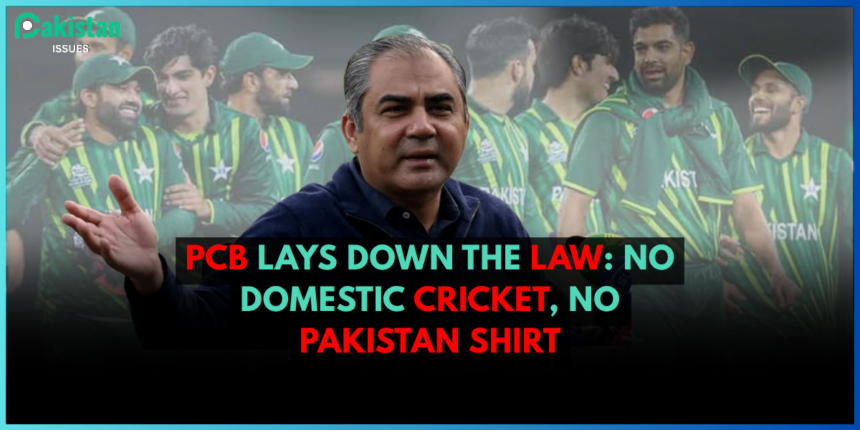In an effort to tighten its grip on discipline and revive the core of its cricket structure, the Pakistan Cricket Board (PCB) has issued a clear directive: national players must commit to domestic tournaments if they want to stay in contention for international cricket.
The move follows years of complaints that top players have been skipping domestic events, weakening local competitions and disconnecting themselves from the national cricketing base.
PCB Chairman Mohsin Naqvi, while addressing reporters this week, didn’t mince words. “You play for Pakistan, you play for domestic too. That’s the deal now,” he said.
Under the new policy, all centrally contracted players—and even those in the national squad without a contract—will be required to participate in major domestic tournaments, including the Quaid-e-Azam Trophy, the National T20 Cup, and the Pakistan Cup.
Insiders say this decision is as much about principles as performance. “We need our stars to lift the standard of domestic games, not sit them out,” said a senior PCB official on condition of anonymity.
For years, Pakistan’s domestic cricket has struggled with relevance and quality, partly because big names often chose to rest or play in foreign leagues. With this policy, the board hopes to narrow the gap between national and domestic cricket, and give upcoming players a chance to test themselves against top-level experience.
The reaction has been mixed. Some veterans have praised the move, calling it necessary to maintain the depth and integrity of Pakistan’s cricket pipeline. “If the top guys play, it boosts competition, viewership, and confidence in the system,” said one former national captain.
However, questions remain. What happens when schedules clash? What if players are dealing with minor injuries or burnout? While the PCB has said exceptions will be considered case by case, it’s clear the new default is domestic-first.
The bigger message is one of culture change. No longer will players be allowed to float between international games and global T20 leagues without contributing to Pakistan’s own cricket structure.
Young players, particularly those in the first-class circuit, see this as a major step forward. “Playing alongside national stars is the best learning experience you can get,” said one Karachi-based fast bowler. “It puts everyone on notice.”
While challenges remain in balancing workloads, enforcing this policy may mark the beginning of a long-overdue shift — one where Pakistan’s domestic cricket regains its status, relevance, and pride.
In a cricket-obsessed nation where heroes are made on both dusty local grounds and packed stadiums, the message is finally being heard: If you want to represent Pakistan, you’ll need to show up at home first.










